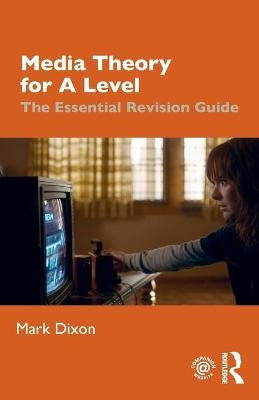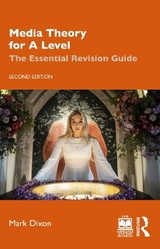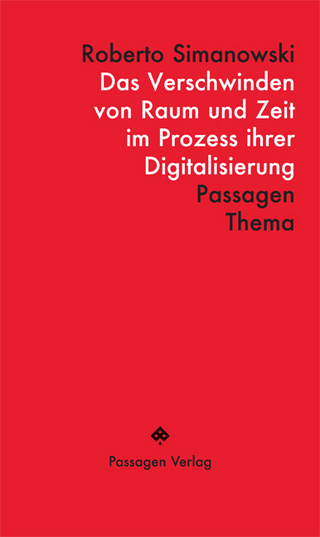
Media Theory for A Level
Routledge (Verlag)
978-0-367-14543-9 (ISBN)
Media Theory for A Level provides a comprehensive introduction to the 19 academic theories required for A Level Media study. From Roland Barthes to Clay Shirky, from structuralism to civilisationism, this revision book explains the core academic concepts students need to master to succeed in their exams. Each chapter includes:
• Comprehensive explanations of the academic ideas and theories specified for GCE Media study.
• Practical tasks designed to help students apply theoretical concepts to unseen texts and close study products/set texts.
• Exemplar applications of theories to set texts and close study products for all media specifications (AQA, Eduqas, OCR and WJEC).
• Challenge activities designed to help students secure premium grades.
• Glossaries to explain specialist academic terminology.
• Revision summaries and exam preparation activities for all named theorists.
• Essential knowledge reference tables.
Media Theory for A Level is also accompanied by the essentialmediatheory.com website that contains a wide range of supporting resources. Accompanying online material includes:
• Revision flashcards and worksheets.
• A comprehensive bank of exemplar applications that apply academic theory to current set texts and close study products for all media specifications.
• Classroom ready worksheets that teachers can use alongside the book to help students master essential media theory.
• Help sheets that focus on the application of academic theory to unseen text components of A Level exams.
Mark Dixon is an Eduqas A Level examiner and Head of Media and Film at Durham Sixth Form Centre. He is also a freelance author, and has written for The Guardian, Tes, Media Magazine and Teach Secondary as well as authoring a range of digital resources for Eduqas Media.
Media language
1. Semiotics: Roland Barthes
2. Structuralism: Claude Leìvi-Strauss
3. Narratology: Tzvetan Todorov
4. Genre theory: Steve Neale
5. Postmodernism: Jean Baudrillard
Media representation
6. Representation: Stuart Hall
7. Postcolonial theory: Paul Gilroy
8. Feminist theory: Liesbet van Zoonen
9. Intersectionality: bell hooks
10. Gender as performance: Judith Butler
11. Media and identity: David Gauntlett
Media industries
12. Ownership Effects: James Curran and Jean Seaton
13. Regulation: Sonia Livingstone and Peter Lunt
14. The culture industry: David Hesmondhalgh
Media Audiences
15. Media modelling effects: Albert Bandura
16. Cultivation theory: George Gerbner
17. Reception theory: Stuart Hall
18. Fandom: Henry Jenkins
19. The end of audience: Clay Shirky
| Erscheinungsdatum | 18.10.2019 |
|---|---|
| Zusatzinfo | 141 Tables, black and white; 5 Halftones, black and white; 5 Illustrations, black and white |
| Verlagsort | London |
| Sprache | englisch |
| Maße | 129 x 198 mm |
| Gewicht | 249 g |
| Themenwelt | Sozialwissenschaften ► Kommunikation / Medien ► Medienwissenschaft |
| Sozialwissenschaften ► Soziologie ► Allgemeines / Lexika | |
| ISBN-10 | 0-367-14543-X / 036714543X |
| ISBN-13 | 978-0-367-14543-9 / 9780367145439 |
| Zustand | Neuware |
| Informationen gemäß Produktsicherheitsverordnung (GPSR) | |
| Haben Sie eine Frage zum Produkt? |
aus dem Bereich



